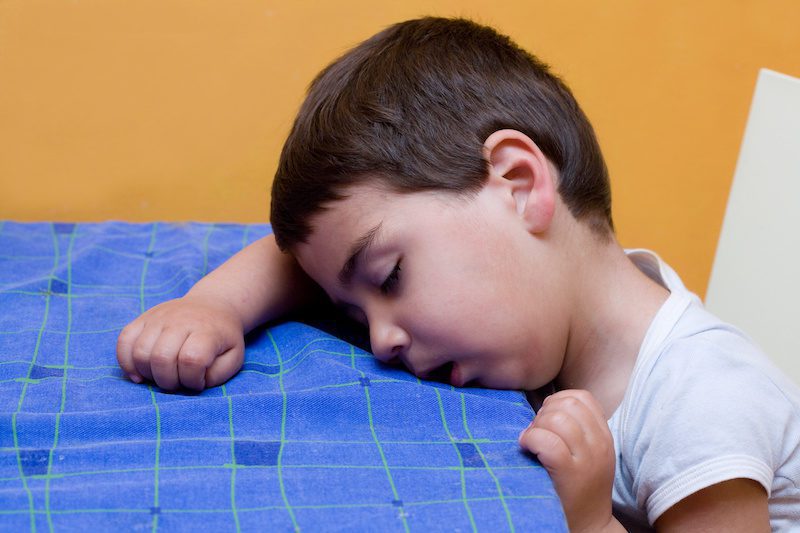Anger, Self-regulation & Tantrums, Children's Temperaments: Roosters & Lambs, Essential Kids Blog, Posts for Parents
Become an energy detective for your child

Every parent will struggle at times to maintain their energy levels in order to keep up with their child/ren in our increasingly busy world.
When you throw a good dose of sleep deprivation into the mix, you can become familiar with feeling exhausted, lethargic or completely drained. This means you are quite obviously low on energy.
The same happens for our children who, without the mature executive functioning brain that we adults have, can struggle. Often this is exhibited through emotional upheaval, angst and behavioural challenges like meltdowns or tantrums.
Toddlers and young children have an under developed brain in terms of vertical growth and tend to function mostly from the primitive brain — think crying, shouting, meltdowns and tantrums.
This is a normal stage of development and gradually they can learn to manage setbacks like the wrong coloured cup, sandwiches cut in the wrong shape or “he looked at me!”
Essentially, they can struggle to make positive neurotransmitters or ‘feel good’ brain chemicals like serotonin (feeling calm), dopamine (feeling excited and engaged) and endorphins (feeling happy and joyful), and often they need a grown-up to help them navigate these challenging moments.
Temperament and energy
Without any evidence to support my hypothesis, I believe temperament has a lot to do with how much energy a child has at any given time.
Our ‘roosters’ or strong, feisty children and adults simply tend to have more energy. Let’s be honest when they’re little it is often annoyingly too much energy.
I am a high-energy person and seriously I am really grateful that I grew up on a farm with 4000 acres and around 10,000 sheep plus my siblings to help me discharge excess energy.
Our ‘lambs’ — children who are naturally more sensitive — seem to run on lower energy levels.
When energy levels are too high or too low for some children, they trigger the stress hormone cortisol and it feels awful.
Managing our energy levels is technically about self-regulation and Dr Stuart Shanker who is one of the leading researchers and experts in this field explores the many things that can support or disrupt the development of healthy self-regulation in children.
In his 2016 book Self-Reg (co-authored with Teresa Baker), Shanker writes about arousal states to help us understand what is happening with our children’s energy levels.
If we use the metaphor of a cup when exploring energy it can make it easier to understand.
States of arousal
- Asleep
- Drowsy
- Hypo alert
- Calm, focused and alert
- Hyper alert
- Flooded
— Dr Stuart Shanker
When our cup is nicely filled and arousal states are at number four — calm, focused and alert — we will tend to feel energetically strong.
For our more sensitive children, when they lose energy they tend to drop from feeling calm, focused and alert, to feeling depleted.
They often can become whingy or whiny and sometimes their little legs just seem to stop working. They can collapse in a heap because their energy cup is completely empty.
With our stronger, more energetic roosters, if they are unable to discharge excess energy from their bodies, they can become incredibly restless, fidgety and can often suddenly run really fast away from loving grown-ups!
If you have a boy who tends to jump on the couch while watching TV — he’s not trying to be naughty, he is trying to get rid of excess energy because it doesn’t feel nice.
Our environments have become full of noise and visually over-stimulating and these things quite often drain our children’s energy cups, without us even noticing. My goodness, in my house alone my refrigerator, microwave, dishwasher, washing machine and dryer all beep at me! I have even had to argue with my car when it began beeping at me to put a seatbelt on the ‘passenger’ in the passenger seat — it was my handbag!
All these extra noises are overloading our precious children’s nervous systems and draining their cups.
Here are some guidelines that may help you become better attuned to what’s happening in your child’s energy cup and what you can do to help.
Filling Energy Cups
- Spending enough one-on-one connection time to fill your child’s unique love cup
- Meeting unmet needs — are they hungry, thirsty, or need a sleep, a hug?
- Time outside — fresh air and greenery are naturally restorative
- Time off screens
- Meeting friends for a play in the park/beach after school
- Good quality food and treats (avoid sugary drinks and treats — they deplete energy very fast!)
- Prioritising sleep — at night and rest time in day when needed
- Play, play, play — having fun is the fastest cup filler ever!
- Laughter and lightness — be silly and laugh lots. Novelty works a treat!
- Reading to kids
- Soothing, calm down times and breathing more deeply
- Family rituals — home-made pancakes/pikelets for afternoon tea/watching the full moon/family movie nights/bedtime rituals.
Many children are completely depleted of energy after school. Be mindful of the need to restore their energy before you attempt to do something that could drain their energy again.
So before you go to the shopping centre and before you start homework be really mindful of stoking their energy cups so that they can cope better.
Just to make things a little more complicated if you have more than one child, they often have different ways of needing to have their energy cups filled so you may need to do some detective work to figure out what works best for each individual.
Become an energy detective — I assure you it will help your family in so many ways.
Image credit: ©️ elisabetta figus /Adobe Stock – stock.adobe.com




 Manage Membership
Manage Membership